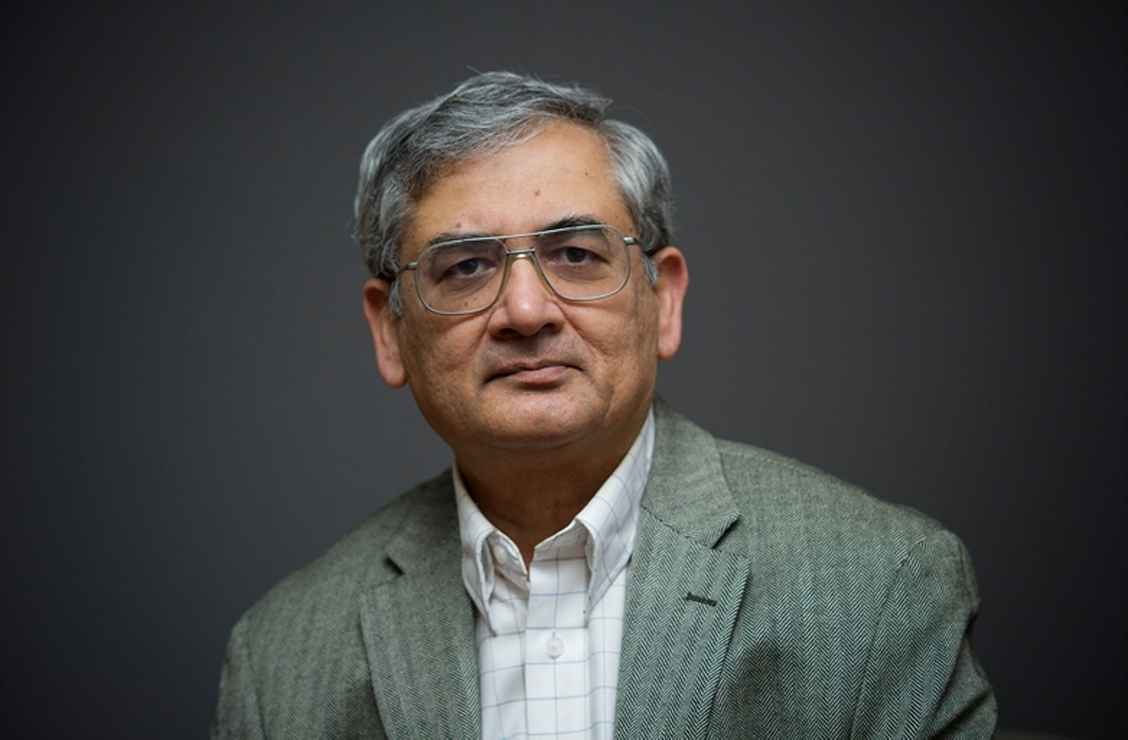Economics professor Tapan Mitra gives back to students
By Linda B. Glaser

Tapan Mitra, the Goldwin Smith Professor of Economics, has always wanted to give back to the educational institutions with which he has been associated. To help fulfill that dream, Mitra has established annual prizes in the Department of Economics with an $100,000 endowment, a “concrete expression of my continuing attachment to this great institution of learning,” he said.
He chose to benefit students with his gift, he explained, because teaching students for more than 40 years has been one of the most rewarding experiences of his life. “My gift is to encourage Cornell students to pursue academic excellence. My hope is that this will have a positive influence in the Cornell experience of both current and future generations of students,” he said.
Professor Lawrence Blume, the Donald C. Opatrny ’74 Chair of the Department of Economics, believes it will. “Professor Mitra’s generous gift gives us the opportunity to recognize our most promising graduate students at a key stage in their student career. The prize funds for research will help our best students do even better,” Blume said.
The inaugural prizes were awarded May 29, during Commencement Weekend. Four prizes of $500 went to graduating economics majors who demonstrated exceptional academic work. The Tapan Mitra Economics Prize for Development Economics was awarded to Zi Xian Sheryl Lim ’16. Hahyun Hwang ’16 won the Tapan Mitra Economics Prize for Financial Economics. The Tapan Mitra Economics Prize for Industrial Organization was presented to Tianwang Liu ’16. And Shohini Kundu ’16 won the Tapan Mitra Economics Prize for International Finance.
Two prizes of $1,000 for research support were awarded to graduate students in economics for contributing outstanding papers to the third-year seminar or conference; the inaugural prizewinners were Maxwell Kiniria and Vesall Nourani.
Mitra has been teaching at Cornell since 1981 and served two terms as chair of Cornell’s Department of Economics, 1993-98 and 1999-2002. His research themes include analysis of the economic decision-making of “forward-looking agents” –individual and societal agents who consciously plan today’s actions knowing they will affect their future opportunities as well as future welfare.
Mitra has used this framework of analysis to study various aspects of the economics of natural resources, such as sustainable development and the economics of climate change. “How a society uses up natural resources currently can have enormous effects on the well-being of future generations of that society, including generations still unborn,” he said. “This trade-off between the present and the future makes the formulation of equitable intergenerational preferences central to the subject matter.”
In July 2008, an economic theory conference was held at Cornell in honor of Mitra’s 60th birthday. The conference, sponsored by Cornell’s Center for Analytic Economics and Department of Economics, was organized by Mitra’s students, especially Santanu Roy, M.A. ’90, Ph.D. ’91, and featured speakers from around the world, including several former students who became academics.
“Tapan Mitra was, quite simply, an extraordinary mentor,” said Debraj Ray, M.A. ’81, Ph.D. ’83 (New York University), who also presented at the conference. “The problems that drew his attention were invariably those for which the answer involved subtle and complex analytical considerations, and his ability to formulate a sustained line of attack on those problems was inspiring. My time spent with him represented my deepest learning experience at Cornell.”
Another presenter, Prajit Kumar Dutta, M.A. ’85, Ph.D. ’87, says Mitra’s example was extremely important when he began to do research as a graduate student. “He was always very focused on his work, very engaged. Also his approach to research, which was very methodical, very systematic, always involved going after interesting questions in a way that’s built up from first principles. All of that was extremely inspiring. I couldn’t have got through my graduate study without him.”
Linda B. Glaser is a staff writer for the College of Arts and Sciences.
Media Contact
Get Cornell news delivered right to your inbox.
Subscribe